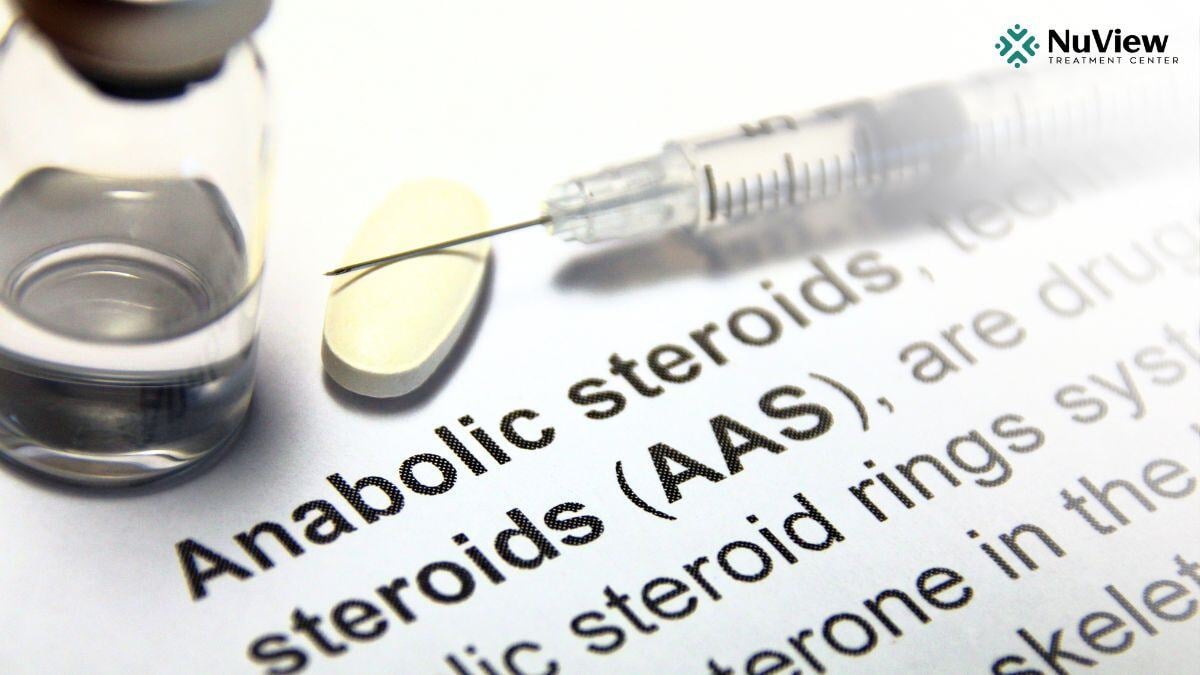Prednisone is a powerful medication that works great to treat a lot of different conditions, but once you are done with its course, how long does it actually stay in your body?
Prednisone mainly works by replacing the cortisol produced by the body. Cortisol is a hormone that plays a role in regulating your body’s response to stress, controls your body’s use of fats and carbohydrates, and even affects your metabolism.
Prednisone is a prescription-only medicine, so only take it as recommended by your doctor. If you have been prescribed Prednisone, one of the questions that you might have pondered is how long it stays in your body.
How Long Does Prednisone Stay In Your System?
Typically, Prednisone stays in your system for about 11 – 16.5 hours only. But the answer also depends on several other factors. Some tests may detect it for extended periods. Some of these are:
Dosage and Frequency: Depending on the dose and frequency of use, your body may take a shorter or longer time to eliminate Prednisone. Higher doses and frequent use mean Prednisone is retained in your body for longer periods of time.
Metabolism: Metabolism breaks down Prednisone, which determines the elimination process. However, metabolism rates vary from person to person. It depends on genetics and lifestyle factors. Following a healthy diet and an active lifestyle is something that helps maintain a healthy metabolic rate.
Age: With increasing age, the metabolic rate slows down. So, older persons might retain Prednisone in their bodies for a longer time.
Liver and Kidney Functioning: The liver is responsible for metabolism, and the kidneys for excretion. Pre-existing liver or kidney problems can hamper this process.
Body Mass: Body mass mainly affects because of the effect it has on the metabolic rate. Higher body mass slows down the metabolic rate.
Hydration: Prednisone is a steroid-type drug; therefore, drinking adequate amounts of water is generally advisable as it regulates fluid retention in the body. However, your body's hydration levels also affect the metabolism rates, meaning they help in getting Prednisone out of your system as well.
Prednisone can be habit-forming, leading to addiction in cases of extended use. Medically supervised Prednisone detox is required in these cases. This can take anywhere between a few weeks and a few months, depending on the dosage, frequency of use, and duration of use. During detox, under medical supervision, the medication is slowly reduced in order to safely and effectively deal with any withdrawal symptoms.
How Long Does Prednisone Stay in Your Urine?
Typically, Prednisone can be detected in your urine up to 2 – 4 days after your last dose. However, this can also vary depending on your metabolism rate. In case of higher dosage, extended use, or pre-existing kidney problems, the detection window for Prednisone is bound to increase.
Urine tests are commonly used tests for Prednisone. They can be easily administered and are cost-effective. Moreover, they are also highly reliable.
How Long Does Prednisone Stay in Your Hair?
The detection window for Prednisone is the longest in your hair. It can be detected in your hair follicles for up to 90 days.
Hair testing is not a commonly used testing method for Prednisone. It can detect the drug even after you have stopped using it, as it deposits in your hair. However, in cases where long-term patterns of Prednisone use need to be analyzed, hair testing is preferable.
Get Started With Nuview Treatment Center
Our dedicated professional staff is here to guide you or your loved one on the journey to lasting recovery, offering support every step of the way.
How Long Does Prednisone Stay in Your Saliva?
Prednisone can be detected in your saliva only up to 1 – 2 days after your last dose. After this window, Prednisone levels in your saliva drop rapidly and can no longer be detectable.
Saliva tests are the least invasive and easiest to administer. Cost-effective as well. However, given the short detection window, they are best suited for immediate detection purposes.
How Long Does Prednisone Stay in Your Blood?
The detection window for Prednisone is the shortest in your blood. It can be detected in your blood for only up to 16 – 24 hours after your last dose. However, this also depends on metabolic rates and kidney functioning.
Blood tests for Prednisone are minimally invasive and highly accurate. Given the short detection window, they are not as preferred as, say, urine tests. In clinical settings, however, they can be very useful.
Test Type | Detection Window |
Urine | 2 – 4 days |
Hair | 90 days |
Saliva | 1 – 2 days |
Blood | 16 – 24 hours |
How Long Does It Take for Prednisone to Take Effect?
Prednisone is a fast-acting drug. It typically starts working within an hour of intake. However, its effects are not immediately noticed. Depending on the reason your doctor prescribed it, you might begin to notice its effects from a few hours to a few days after you have started taking it.
Moreover, there is also a delayed-release version of Prednisone available, which begins to take effect after 6 hours of intake. You might be wondering what is the use of this version is when there are faster-acting versions available. It has its uses, typically in the cases of rheumatoid arthritis. If taken at night, it can help relieve the effects of rheumatoid arthritis by morning, usually when it is more severe. It also means far less frequent use of the drug.
Get Started With Nuview Treatment Center
Half-Life of Prednisone
Prednisone has a relatively shorter half-life, up to 3 – 4 hours. What this means is, it takes nearly 3 – 4 hours for half of the drug to be eliminated from your system, and another 3 – 4 hours for another half to be eliminated from your system, and so on. After a few half-lives, the drug is completely eliminated from your system, and this takes about 16 – 24 hours.
Keep in mind, half-life can also be dependent on other factors, like the dosage, frequency of use, metabolism rates, and kidney functioning.
Peak Levels of Prednisone
Prednisone is rapidly absorbed into your bloodstream, meaning it reaches peak levels between 1 – 3 hours of intake. For the delayed-release version, it might take up to 6 hours. During this time, the drug is at its most effective in your body.
Types of Prednisone Testing
Prednisone testing methods are vast and varied. It all depends on the need of the hour.
Urine Tests:
Urine tests for Prednisone are most common. This is mainly for its detection window and ease of use.
Hair Tests:
Hair tests are not as common as urine tests. However, they have their uses given that they have the longest detection window of all the tests on this list. They can be used in cases where long-term moderation is required.
Saliva Tests:
Saliva tests have a relatively shorter detection window for Prednisone. However, they are the least invasive and easiest to use. Therefore, they are mostly preferred where immediate detection is required.
Blood Tests:
Blood tests have the shortest detection window for Prednisone of all the tests on this list. However, given their accuracy, they are generally preferred in medical environments.
What happens during Prednisone Withdrawal?
While prednisone leaves your body fairly quickly, it can leave you with symptoms of withdrawal as your body adjusts. The best you can do to prepare yourself for this process is to know what to expect and be prepared. Some of the withdrawal symptoms are:
- Fatigue and Weakness
- Joint and Muscle Pain
- Mood Changes and Irritability
- Loss of Appetite and Nausea
- Difficulty Sleeping
- Adrenal Insufficiency
When to Seek Medical Help
While some discomfort is normal during prednisone withdrawal, certain symptoms may require medical attention. If you experience extreme dizziness, weakness, confusion, or other signs of severe adrenal insufficiency, seek medical help immediately.
Frequently Asked Questions
Q1. How long does prednisone stay in your system?
Prednisone typically stays in your system for about 1 to 3 days after your last dose. However, the effects may last longer depending on factors like your metabolism, the dosage, and how long you've been taking it.
Q2. How long does prednisone stay in your system after taking it for 7 days?
Prednisone has a half-life of approximately 3 to 4 hours, meaning half of the drug is eliminated from your body in that time. But, its effects and traces may linger a bit longer, especially if you've been on a higher dose.
Q3. What factors affect how long prednisone stays in your system?
Several factors influence prednisone's clearance, including your dosage, the duration of use, your metabolism, liver function, and overall health.
Q4. How can I speed up the process of getting prednisone out of my system?
To help speed up prednisone’s clearance, stay hydrated, eat a balanced diet, and engage in regular exercise. However, never stop prednisone abruptly without consulting your doctor, as it can cause withdrawal symptoms.
Q5. Can prednisone cause side effects even after it's cleared from your system?
Yes, prednisone may cause lingering side effects like weight gain, mood changes, or bone thinning, even after it's no longer in your system, especially if used long-term.
- How Long Does Prednisone Stay In Your System?
- How Long Does Prednisone Stay in Your Urine?
- How Long Does Prednisone Stay in Your Hair?
- How Long Does Prednisone Stay in Your Saliva?
- How Long Does Prednisone Stay in Your Blood?
- How Long Does It Take for Prednisone to Take Effect?
- Half-Life of Prednisone
- Peak Levels of Prednisone
- Types of Prednisone Testing
- What happens during Prednisone Withdrawal?
- Frequently Asked Questions
- How Long Does Prednisone Stay In Your System?
- How Long Does Prednisone Stay in Your Urine?
- How Long Does Prednisone Stay in Your Hair?
- How Long Does Prednisone Stay in Your Saliva?
- How Long Does Prednisone Stay in Your Blood?
- How Long Does It Take for Prednisone to Take Effect?
- Half-Life of Prednisone
- Peak Levels of Prednisone
- Types of Prednisone Testing
- What happens during Prednisone Withdrawal?
- Frequently Asked Questions
Get Help Today!
Everyone is Welcome Here and We All Have Your Back
Your healing journey deserves a personalized approach. At NuView, we integrate expertise in behavioral therapy, mental health, and substance use treatment to create a customized recovery plan tailored to your unique needs.
Connect with our Admissions Specialists today.







Written By
Dr. Ryan Peterson